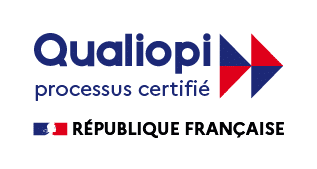When I speak French it can feel very strange to use the present simple for a sentence that I would usually use the present continous in English. I often add the ‘en train de…’ expression into my sentence.
What are the differences?
The present simple has a permanent feel, while the present continuous means temporarily. “I’m working in Lorient” usually has ‘at the moment’ or ‘for a few weeks’ added to it.
Describing your activities at work.
So, which tense should you use to describe your activities at work? Or your current project? Your activities are part of your job description (contact clients, organise meetings, negotiate prices…) so these have a permanent feel, and you use the present simple. However, your current project has a deadline (hopefully!) so it’s a temporary situation. Something you’re working on at the moment, or for the next few years.
Of course, something that is happening at the moment you speak is always present continuous: “I’m waiting for the sales director” or “Pierre is speaking to the sales rep now”. Whereas routine actions are present simple, and a frequency adverb is usually present (sometimes, always, often, never…). “I usually open my emails in the morning” or “I never go to business meetings”.
When & why we use the 2 tenses...
- To talk about regular or repeated actions.
"I speak to clients everyday on the phone."
- The talk about general facts.
"Our company employs 400 people."
- To talk about actions happening now, (at the moment), and currect projects.
"Sorry, David can't help you, he's speaking with a client."
- The talk about trends and changing situations.
"The cost of living is rising in many countries."
Grammar
I / you / we/ they
- POSITIVE :
I work for Renault.
I'm French.
- NEGATIVE
They don't work for BMW.
They aren't Spanish.
- QUESTION
Where do you work?
Are you Italian?
She / he / it
- POSITIVE :
He works for Renault.
It's a French product.
- NEGATIVE
He doesn't live in Vannes.
It isn't German
- QUESTION
Where does he live?
Is she English?
I / you / we/ they
- POSITIVE :
I'm working on a report.
I'm talking with a client.
- NEGATIVE
They aren't coming.
I'm not working late.
- QUESTION
Are you making progress?
What are you doing?
She / he / it
- POSITIVE :
John is writing an email
She's playing tennis with Jill
- NEGATIVE
Eric isn't listening now.
She isn't staying late tonight.
- QUESTION
How is he getting on?
Is it working ok now?
Now it's your turn.
How can you try this out? Make a 5-sentence presentation of yourself mixing the 2 tenses.
I live …
I work …
I deal with …
At the moment, I …
I usually …
Remember present continuous “now” and present simple “general fact”.
Add your sentences in the comments section below and I’ll give you my feed back.





